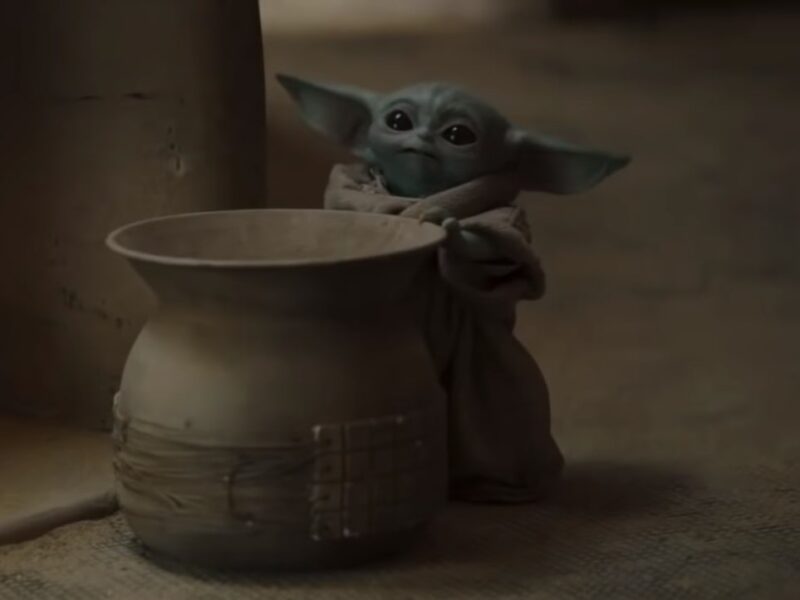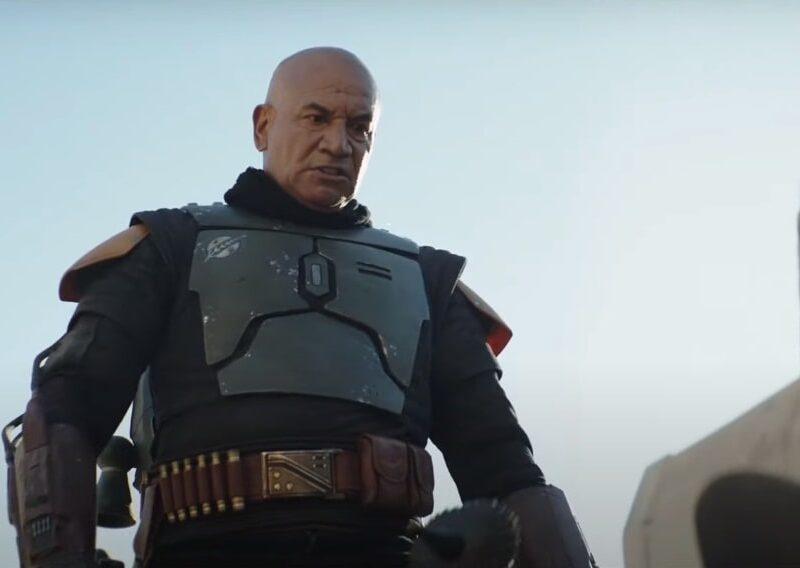1. What is the Meaning of “May the Force be with you”?
“May the Force be with you” was a special saying in the Star Wars universe. People used it to wish others good luck or to show they cared. When someone said this, they hoped the Force would help the person they were talking to. People often said it when saying goodbye or when someone was about to do something hard.
2. Who Says ‘May the Force Be With You’?
2.1 Jedi
The Jedi were the main users of this phrase. They believed in the Force and used it in their daily lives.
Qui-Gon Jinn, a Jedi Master, said it to young Anakin Skywalker before a big race. Another Jedi, Eno Cordova, used it at the end of a message he left about some alien species and a list of Force-sensitive kids.
Obi-Wan Kenobi, another famous Jedi, said it many times in his life. He used it in a warning message to other Jedi when the Republic turned against them. During a dark time when Jedi were being hunted, the Jedi Cere Junda said it to her student, Trilla Suduri, before leading danger away from her. Later, she said it to another young Jedi, Cal Kestis, when sending him on an important mission.
Kenobi also told Luke Skywalker, “The Force will be with you. Always” during a big space battle. Later, Luke himself used the phrase when his friends Lando and Chewbacca went to save their friend Han Solo.
2.2 Non-Jedi
Even people who weren’t Jedi used this saying or something like it.
Chirrut Îmwe, who wasn’t a Jedi but believed in the Force, said, “May the Force of others be with you.” He would say this on the streets of Jedha.
During a dangerous mission to steal plans for a big space weapon, Jyn Erso said to her team, “May the Force be with us.” When her team was in trouble, Admiral Raddus wished them well by saying, “Rogue One, may the Force be with you.”
Before another big space battle, General Jan Dodonna used the phrase to encourage rebel pilots. Han Solo, who didn’t really believe in the Force, still said it to Luke Skywalker to wish him luck. Admiral Ackbar also used it before a big fight, saying, “May the Force be with us.”
The Mandalorian bounty hunter Din Djarin once said it to some pilots, and one of them answered, “And also with you.” The engineer Peli Motto used it when Djarin was leaving in his spaceship.
General Leia Organa said it to Rey before Rey left to find Luke Skywalker. Vice Admiral Amilyn Holdo used it to wish pilots good luck after a battle. Even Finn, when trying to leave his friends, said it to Rose Tico.
3. What Are the Religious Roots of ‘May the Force Be With You’?
The phrase’s roots can be traced back to the Old Testament Book of Ruth, where Boaz greets his workers with, “The Lord be with you!” This blessing was a common Hebrew expression, conveying good wishes and invoking divine presence in daily life. As Christopher Carstens notes in his book “Mystical Body, Mystical Voice,” it was a greeting for those gathering their daily bread, working in fields, or embarking on pilgrimages.
Early Christians adopted this phrase, imbuing it with deeper symbolism within the context of the Mass. Here, it took on new meaning as worshippers prepared to receive the true “daily bread” – the Eucharist. The greeting became an integral part of Christian liturgy and daily life, spreading across various denominations.
Even after the Reformation, many Protestant groups retained the phrase. It remains present in Anglican and Lutheran services, while Catholics continue to use it in liturgical blessings given by deacons and priests.
George Lucas, raised in a Methodist family, likely encountered this phrase in religious settings. Star Wars producer Gary Kurtz confirmed that the movie’s adaptation was intentionally evocative of the Christian blessing. By transforming “Lord” into “Force,” Lucas tapped into a spiritual concept that resonated across cultures while maintaining a connection to its religious roots.
The phrase’s power in Star Wars stems from this deep cultural and spiritual heritage. It carries the weight of centuries of use as a blessing and invocation of divine presence. When characters in the films say, “May the Force be with you,” they’re echoing an ancient tradition of seeking protection, guidance, and connection to something greater than themselves.
Interestingly, when the phrase is absent from Star Wars media (as in “Solo: A Star Wars Story”), fans often note a spiritual vacuum. This highlights how central the concept has become to the franchise’s mythology and emotional core.
Explore Our Lightsaber Collection
Tony Allen is a writer for LightsabersBlog.com, a website focused on everything related to lightsabers. Tony grew up in Austin, Texas, and went on to study Mechanical Engineering at the University of Texas. Passionate about science fiction and fantasy, Tony has always been deeply involved in hobbies like tabletop RPGs, sci-fi novels, miniature painting, and crafting. This love for creative pursuits drives Tony to write about lightsabers in a way that ignites the imagination of fans around the world.









































